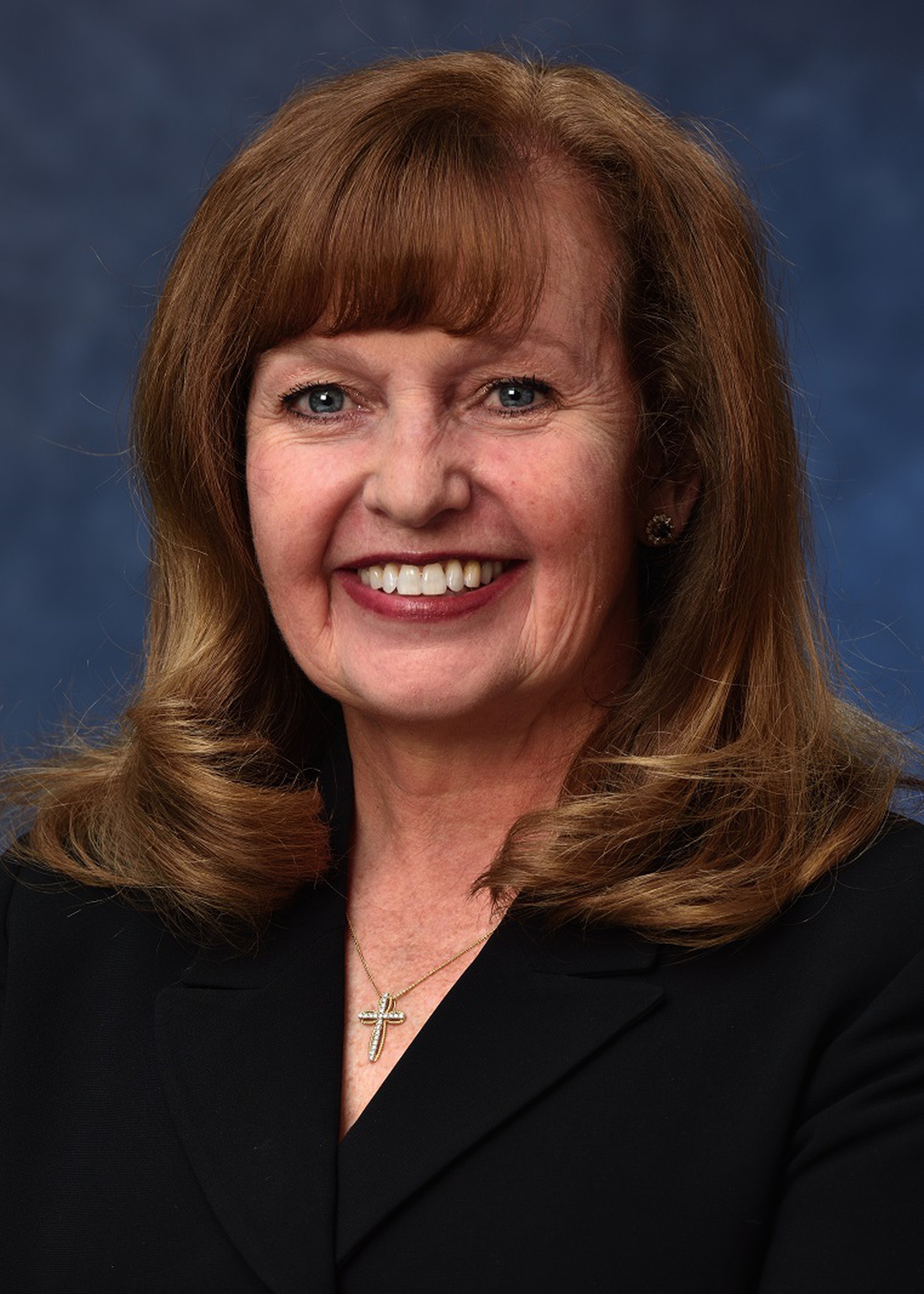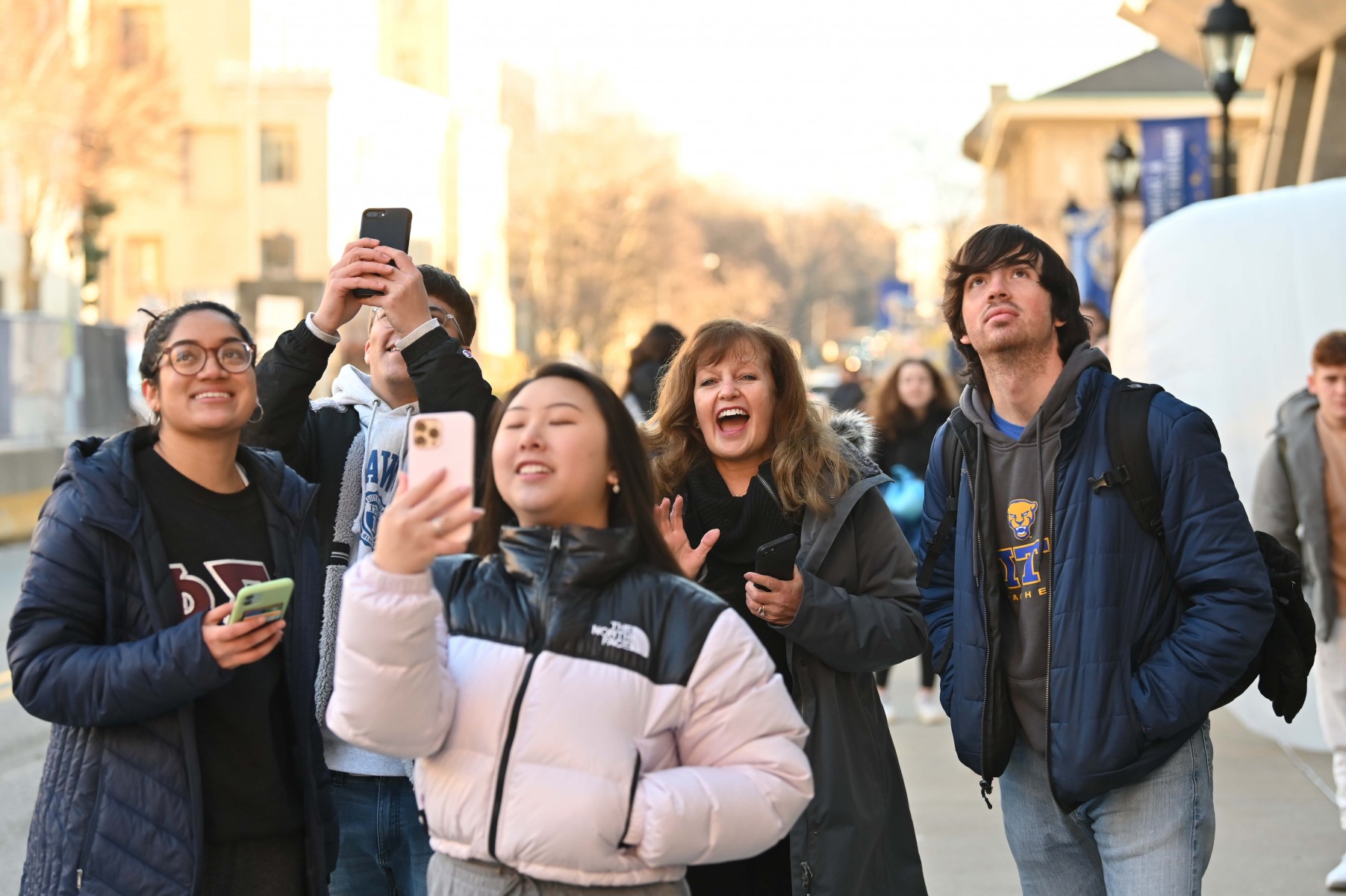An Outstanding Legacy in Engineering Education
Taryn Bayles Receives 2023 Swanson School of Engineering Outstanding Educator Award

After 25 years of teaching, mentoring, nurturing and leading engineering students of all ages, Taryn Bayles, vice chair for undergraduate education and professor of chemical and petroleum engineering at the University of Pittsburgh, has received the Swanson School of Engineering’s 2023 Outstanding Educator Award.
“I am overwhelmed by this recognition, because I am incredibly blessed to have a position that I love,” said Bayles. “The very best part of this position is working with our incredible students. For me, the greatest reward is their success.”
Throughout her career, Bayles has made significant contributions to the field of chemical engineering, and is also an alumna of the Swanson School, having earned both her master’s and PhD from Pitt. Her commitment to excellence in teaching and research has earned her the respect and admiration of colleagues and students alike—and numerous prestigious awards, including the ASEE Pre-College Engineering Education Lifetime Achievement Award, the James Pommersheim Award for Excellence in Teaching Chemical Engineering, the ASEE Donald R. Woods Lectureship for Lifetime Achievement in Chemical Engineering Pedagogy, and the AIChE Philanthropist of the Year Award. A profile of her work was featured recently on the cover of Chemical Engineering Education.
“We are incredibly proud of Professor Bayles and all that she has accomplished. Her work is a testament to the power of education and the importance of dedicated, passionate educators,” said Steven Little, distinguished professor and chair of the Department of Chemical and Petroleum Engineering at Pitt. “I can think of no one more deserving of this recognition and look forward to seeing all that she will achieve in the years to come.”

Bayles’s impressive teaching career is defined by her dedication to her students and their individual needs and goals. For example, she begins each semester by taking a photo of each student and asking them to list their name pronunciation, goals and biography so that she can make flashcards and learn about her students in the first weeks of class. She also uses that information to tailor her coursework so it’s both interesting and useful to the students in her class that semester.
“Dr. Bayles’s teaching style is effective because she involves the students in the learning process by incorporating real-world examples, projects, and learning experiences from both industry and a physical representation,” said former student Samantha Bunke in her letter of recommendation. “Any student who has had Dr. Bayles as a professor, whether it be last year or ten years ago, remembers separating cereal of different size and shape, building and testing a dialysis apparatus using fake blood, or demonstrating Bernoulli’s principle with ping-pong balls, straws, and water-filled paper cups.”
Bayles’s impact on engineering education extends far beyond her classroom, though. As a faculty advisor for Pitt’s AIChE Chem-E-Car team, she has advised over 350 chemical engineering undergraduates. The annual competition asks students to build a shoebox-sized “car” to specific specification using chemical reactions to propel it a certain distance.
“During my two years as a member, I spent many long nights in the basements of Benedum helping to design chemical reaction-powered cars, and I cannot think of a time when Dr. Bayles was not readily accessible for advice or help,” recalled former student Isaac Mastalski in his letter of recommendation for this award.
Bayles is also well-known for her contributions to K-12 engineering education. She incorporates an outreach component in her undergraduate courses, and the efforts of over 1,250 undergraduate engineering students have benefitted more than 12,000 K-12 students.
In addition to teaching students directly about STEM, Bayles’s research and workshops have also taught teachers ways to make STEM accessible to their students. She has led middle school and high school teacher professional development for Project Lead the Way, and co-authored the INSPIRES (INcreasing Student Participation, Interest and Recruitment in Engineering & Science) curriculum, which introduces high school students to engineering design through hands-on experiences and inquiry-based learning with real world engineering design challenges.
“[Taryn] is one of the best known experts in K-12 outreach in engineering education, and she is the expert in chemical engineering,” wrote Phil Wankat, Emeritus Clifton L. Lovell Distinguished Professor of Chemical Engineering at Purdue University. “Taryn has reached the level of first-name recognition. Say ‘Taryn’ to a group of educators who work on STEM outreach, and they all know who you are referring to.”

